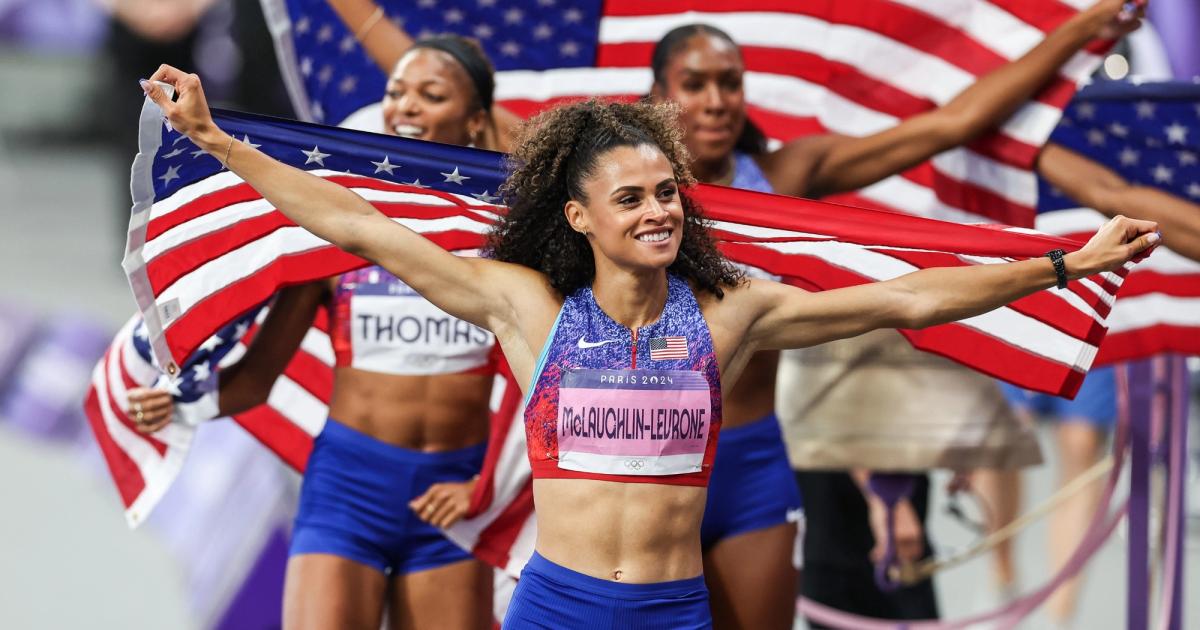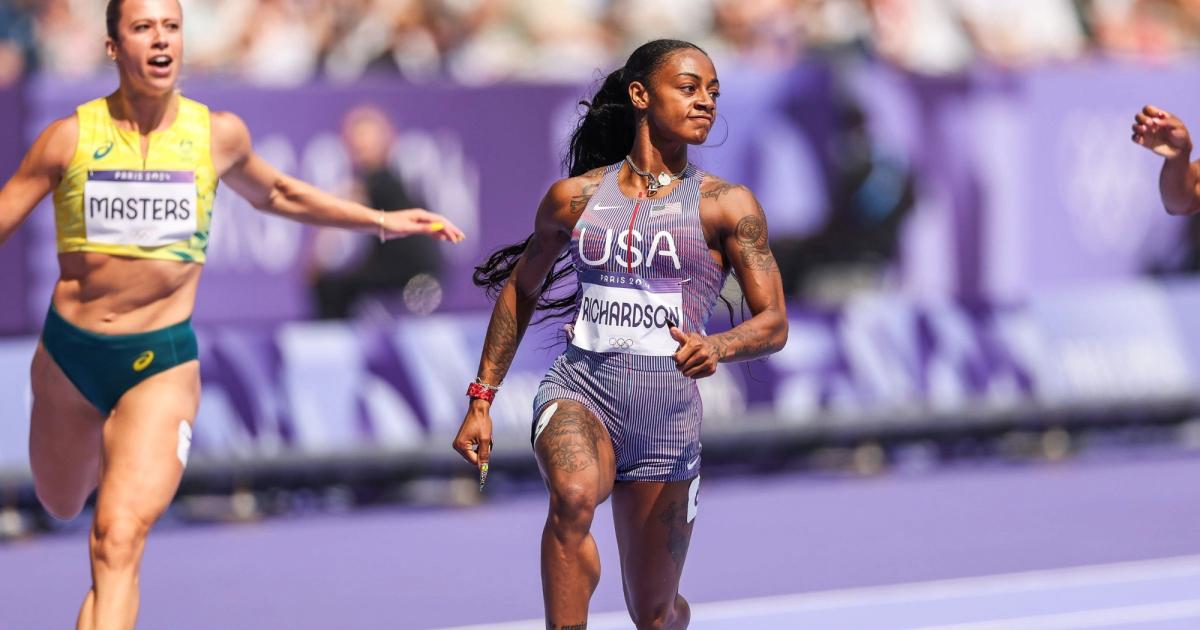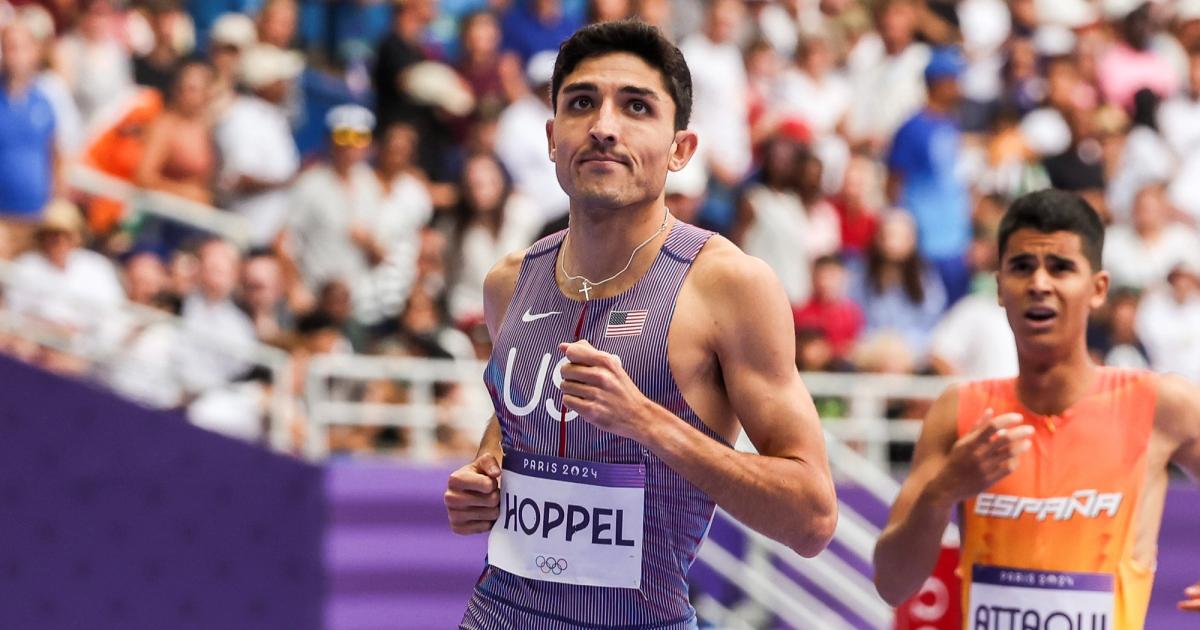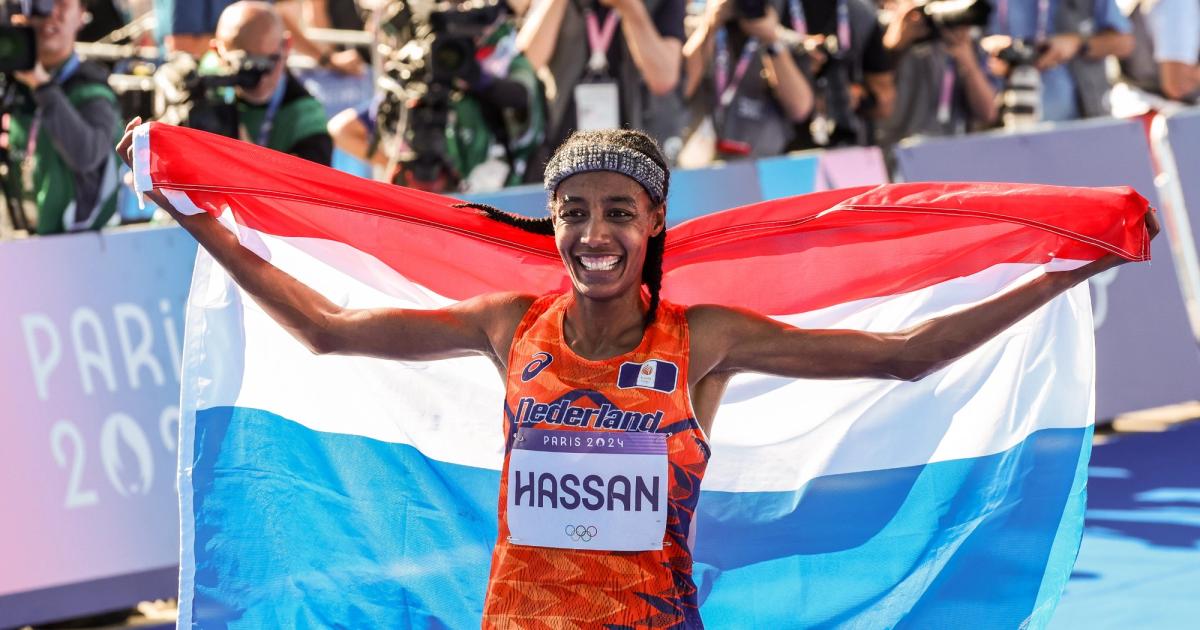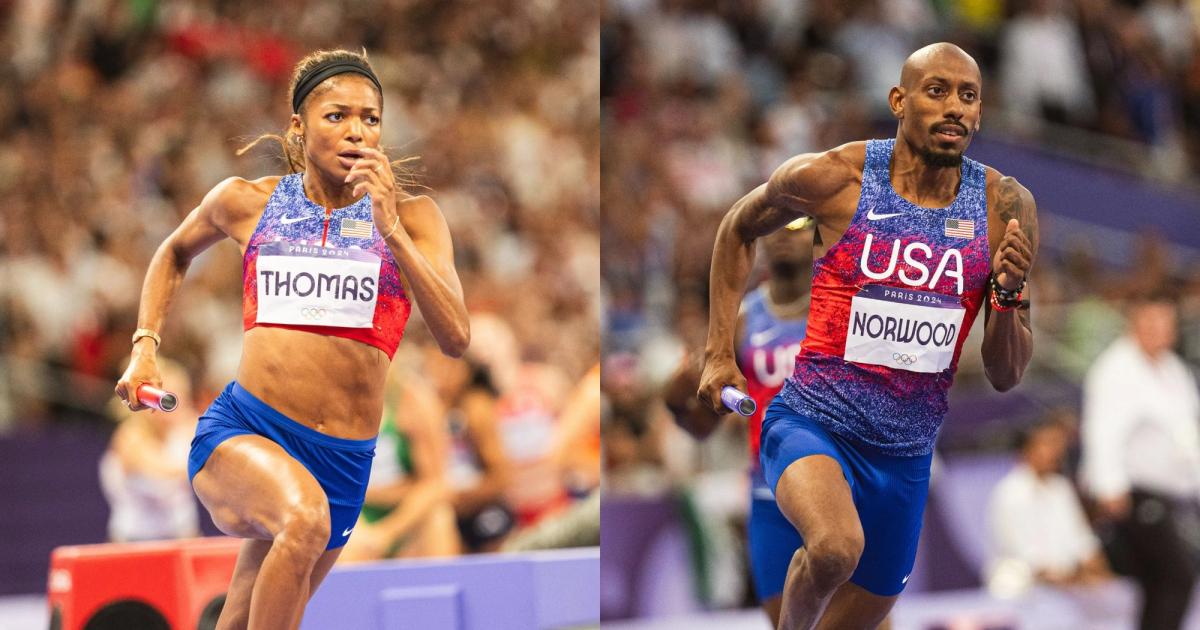By Preet Majithia
August 15, 2024
The grades are in! But before we hang them via a homemade magnet on the refrigerator, let’s take a closer look at those performances. We’re digging into the main teams across the athletics events at the Olympics, and giving them a grade for their results on the biggest stage.
USA: A+
Top marks all around! Team USA had an incredible Olympics, probably ahead of the wildest dreams of even the most optimistic US fans, returning thirty four medals, fourteen of them gold. The U.S. men’s and women’s sprints and field events delivered per usual, while the men’s middle and long distance team exceeded all expectations. Having picked up just one medal on the global stage across the previous three global championships (Paul Chelimo’s 5000m bronze from Tokyo), this group came through big time with five medals. And the only miss came in the 800m where Bryce Hoppel still ended up with fourth place in an American record.
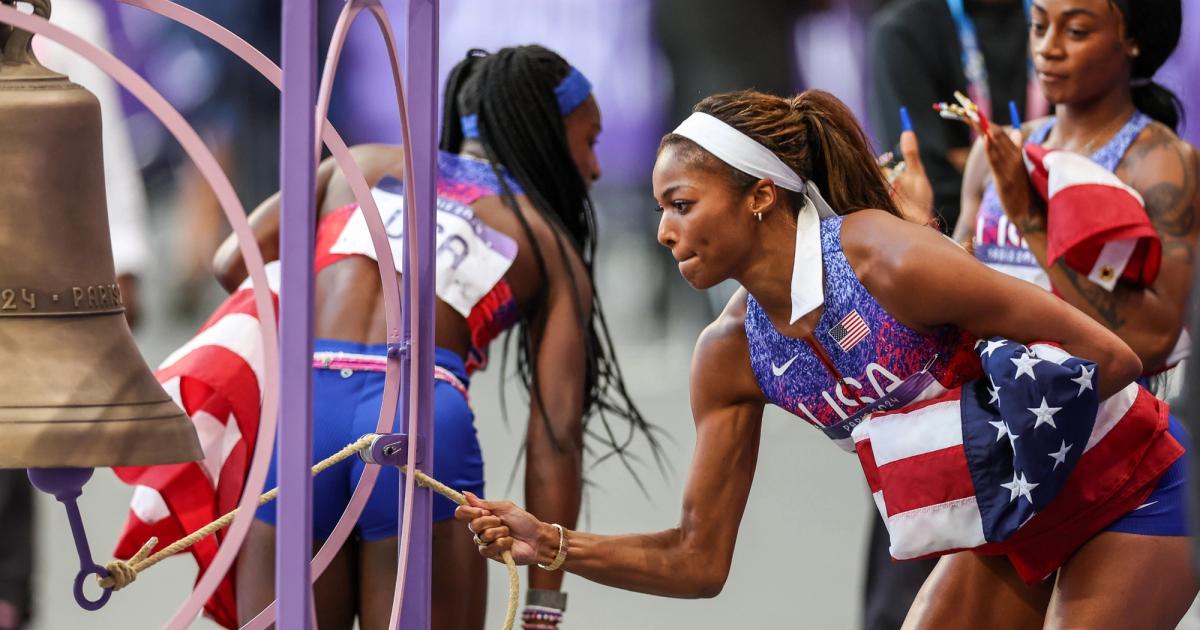
Photo by Kevin Morris / @KevMoFoto
Jamaica: C
Room for improvement. Jamaica won nine sprint medals in Tokyo and an incredible 12 medals in Budapest, of which 10 were again in the sprints. A return of only two medals from the sprints in Paris was unexpected to say the least. But with numerous high profile injuries, coupled with some poor luck in the relays, it was always going to be a tough ask to keep up. The sprints are always more fun when the U.S.-Jamaica rivalry is at its best to spice things up. There were some green shoots with the emergence of Kishane Thompson as a serious challenger, and Tia Clayton looking like a great prospect for the future. There’s also a possibility that this could be a blessing in disguise because of the four medals won in the field events, including an incredible discus win by Roje Stona. Hopefully this serves to remind both budding athletes and the Jamaican federation that the sport is track AND field, and that there are some other great medal winning opportunities out there, which we can only hope leads Jamaica to further develop in events outside the sprints to become an all around force in the sport.
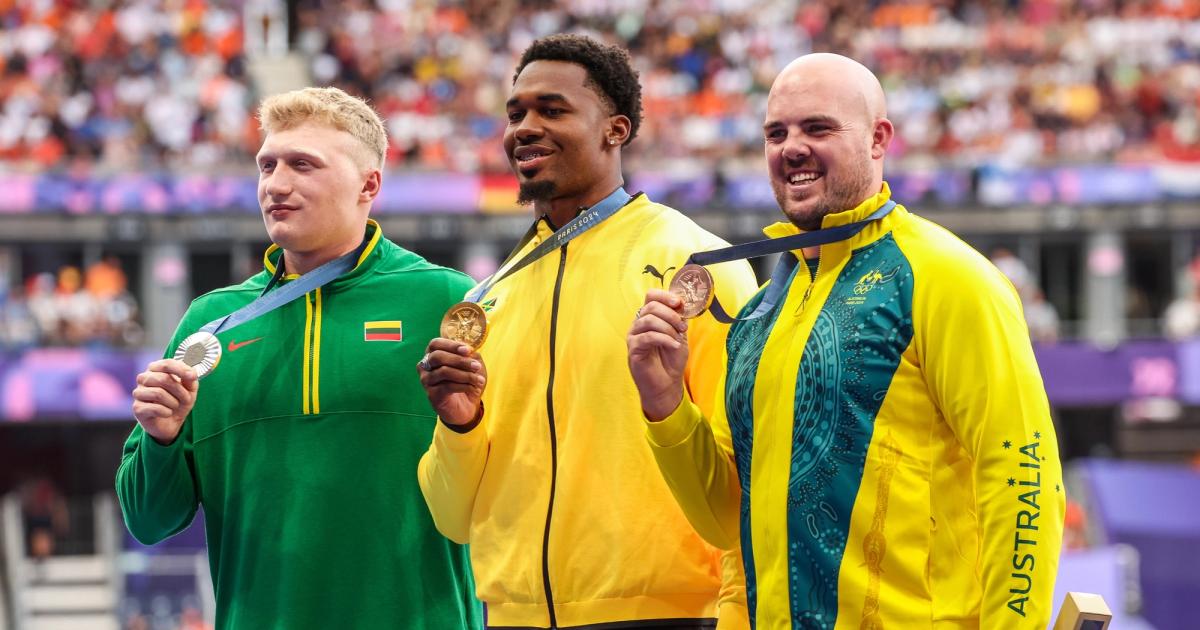
Photo by Kevin Morris / @KevMoFoto
Kenya: A+
Excellent work. Kenya very much had a brilliant meet, winning eleven medals, after having won ten at each of the last three global championships. They produced some great performances, including Emmanuel Wanyonyi leading out the deepest race in history over 800m, Beatrice Chebet with the 5000m and 10,000m double, and Faith Kipyegon becoming a scarcely believable three time Olympic gold medalist in the 1500m.
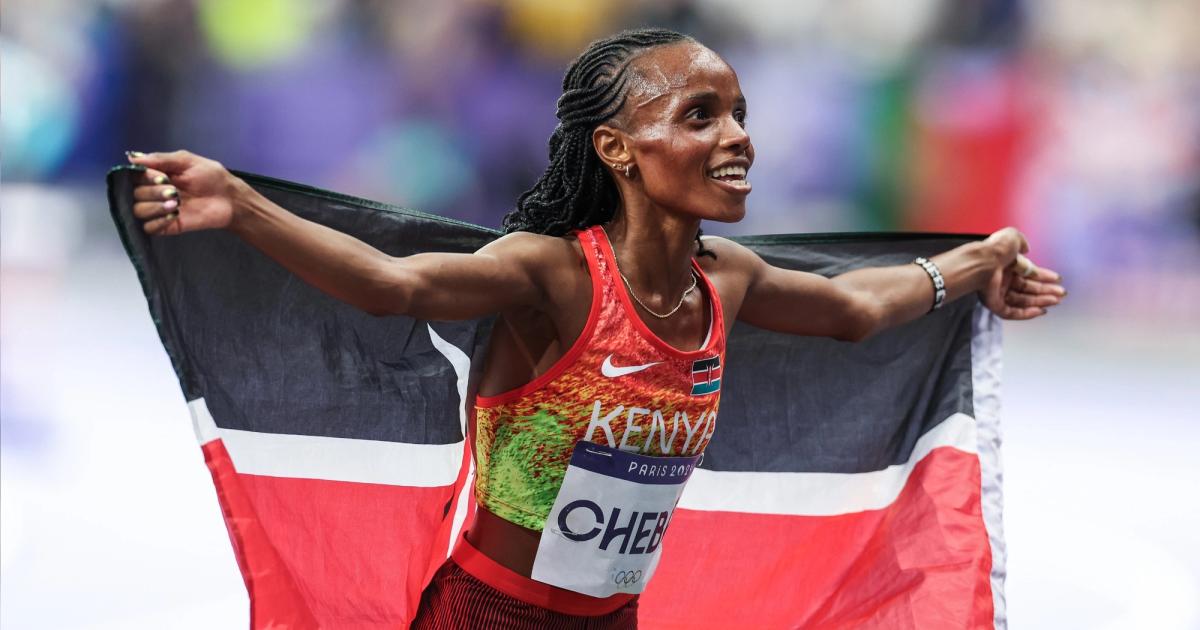
Photo by Kevin Morris / @KevMoFoto
Ethiopia: D
Disappointing – well below par. With ten medals in Eugene and nine in Budapest, Ethiopia came in with lofty expectations, and by their usually high standards, had an absolute stinker. Particularly on the track, where they won only two medals, with one of those coming in the 800m. Berihu Aregawi was the only one who delivered with his kick in the 10,000m, but his success appeared to come at the expense of his teammate Yomif Kejelcha, who seemingly played the role of the sacrificial lamb. There was significant drama that played out publicly around team selection and team tactics which made it sound like the Ethiopian camp was not the most positive environment. Some of the odd selections included leaving Kejelcha off the 5000m team and Freweyni Hailu – reigning World Indoor champion – off the 1500m team, whilst allowing Gudaf Tsegay to triple across 1500m, 5000m, and 10,000m. She subsequently failed to medal in any of the three. Their only gold medal came from Tamirat Tola, who was not originally selected for the marathon and came in as an alternate.
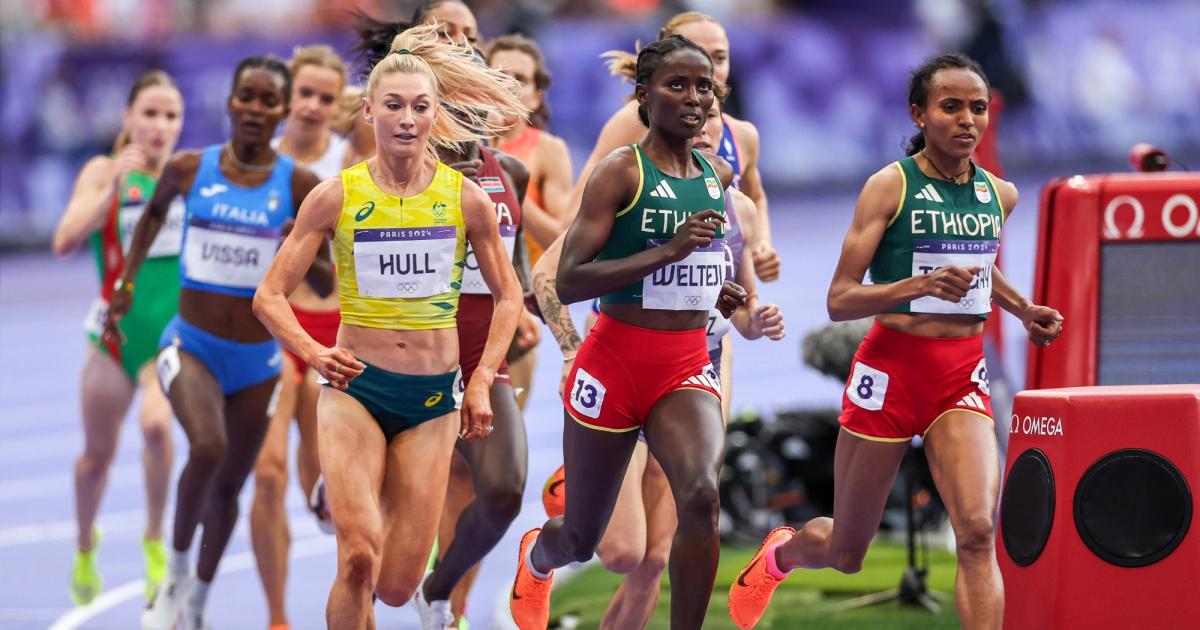
Photo by Kevin Morris / @KevMoFoto
Great Britain & NI: A
Great consistency. Full credit has to be given to the GB relay coaches, as GB were the only nation other than USA to qualify five relay teams, and were the only nation to produce five medals from those teams. 10 medals in total is a great return for GB, and there were of course hopes for a few additional medals and perhaps some more athletes atop the podium, but with the likes of Matt Hudson-Smith, Josh Kerr, and Georgia Bell all running highly impressive national records, and Keely Hodgkinson getting it done in the 800m, there is little to complain about.
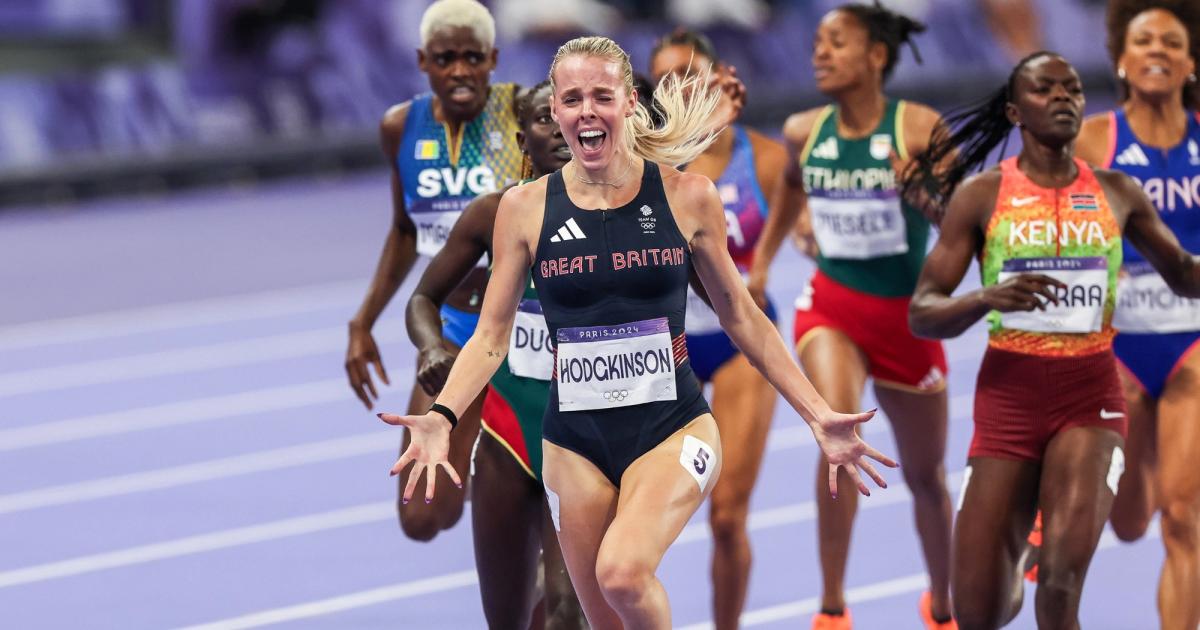
Photo by Kevin Morris / @KevMoFoto
France: B
Valiant effort. France have now won only one medal at each of the four global championships, going back to Tokyo. There is no doubt there would have been higher hopes coming into a home Olympics, but injuries to Kevin Mayer and to some of their top 110m hurdlers also had an impact. Nonetheless, every time a French athlete stepped out on the track it felt like the performance was winning gold purely from the energy in the stadium. My ears are still ringing from the noise! Credit to Cyrena Samba-Mayela for bringing home the silver medal in the 100m hurdles under immense pressure, and to the likes of Alice Finot for her stunning fourth place in the 3000m steeplechase and Clement Ducos for challenging the big three in the 400m hurdles.
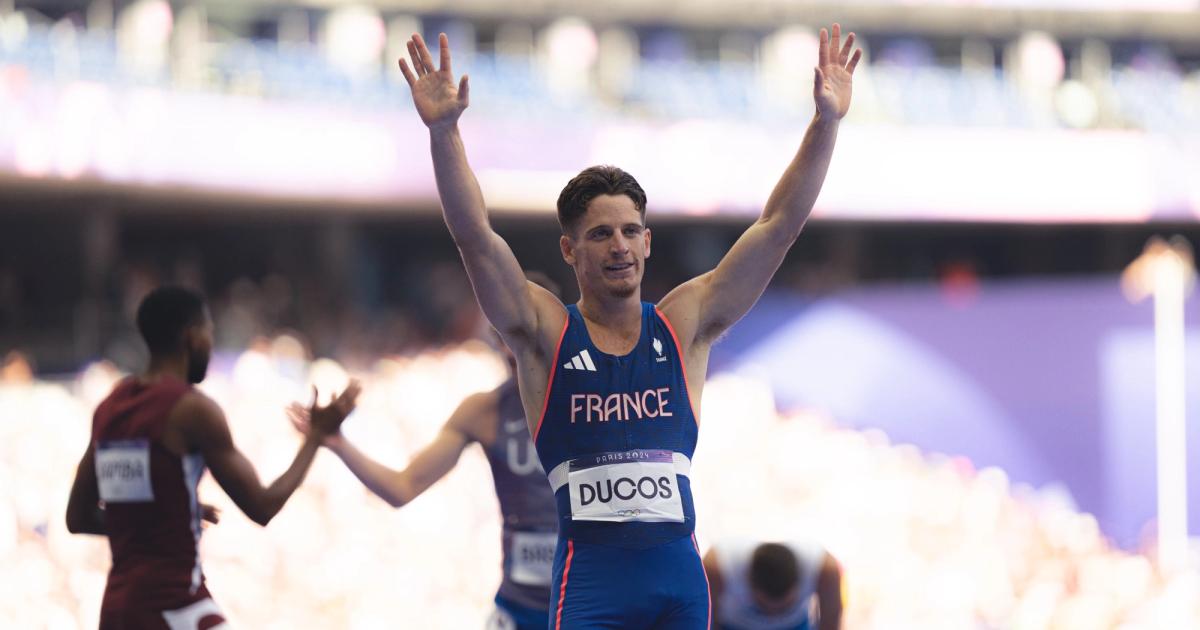
Photo by Justin Britton / @Justinbritton
Canada: B+
Heavy reliance on a few key strengths. Canada continued their gold medal winning stranglehold on the hammer throw with Ethan Katzberg and Camryn Rogers repeating their performances from Budapest. Nobody stops Andre de Grasse taking away a medal, and his clutch performance to anchor the 4x100m team to relay gold was a real feel-good moment. Misfortune did strike with their decathletes who would otherwise have been favorites for a medal, with the injury to Pierce le Page and Damian Warner no heighting in the pole vault.
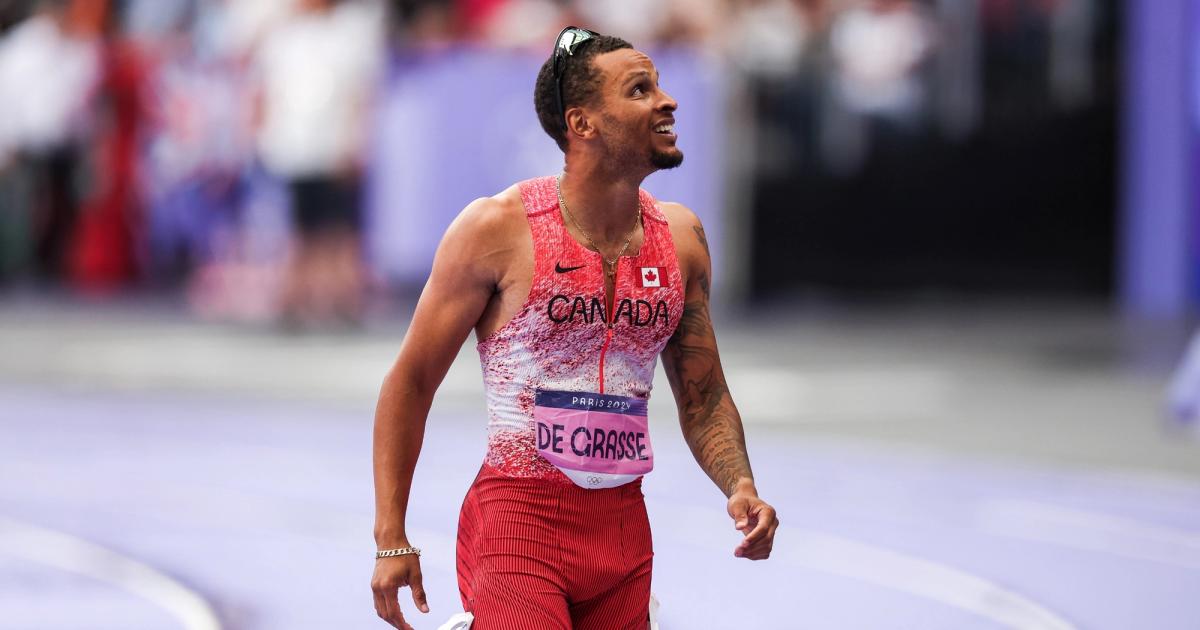
Photo by Kevin Morris / @KevMoFoto
Netherlands: A-
Some spectacular work here. Six medals, including two golds, is a fabulous return for a country with under 18 million residents, but looking behind the curtain the medals were heavily reliant on their two MVP athletes, Sifan Hassan and Femke Bol, who each contributed to three of the medals. Seeing those athletes perform as they did is a joy to behold… so long may it continue! Here’s hoping the Netherlands can diversify their medal winners to help keep this up in the longer term.
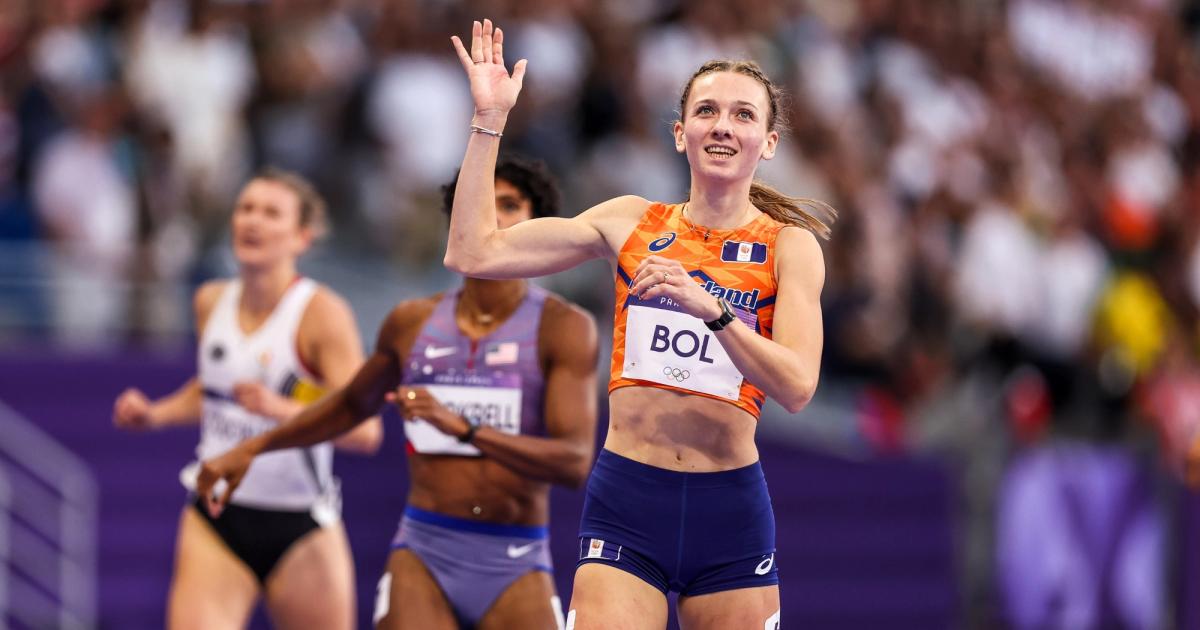
Photo by Kevin Morris / @KevMoFoto
Italy: C
A lot of potential but expected more. After the crazy success in Tokyo with five golds, as well as the amazing performances at Europeans earlier in 2024, and over 50 national records having been set this year, Italy were coming in with a great deal of confidence and a lot of different medal hopes. In general, things did not break their way this time, with only three medals, and no golds. If you had predicted that the best medal for Italy would be silver in the 10,000m, people would have been concerned for your sanity. However, full credit to Nadia Batocletti for her breakthrough performance. Italy also had the dubious distinction of most fourth places (five), alongside Team USA. Gianmarco Tamberi still wins the award for generating the most drama, from losing his wedding ring to being hospitalized with kidney issues the day of his competition and bringing us all along for the ride on Instagram.
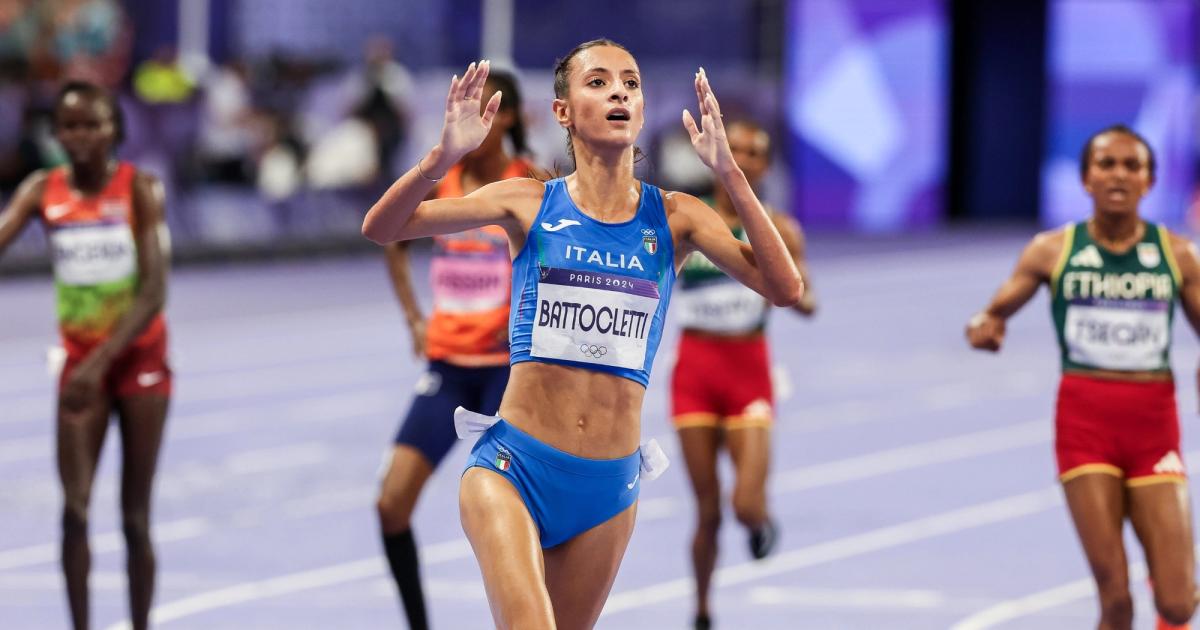
Photo by Kevin Morris / @KevMoFoto
Australia: A
Good all around performance. Australia has always punched above its weight in sports in general, but with seven medals, leaving in fourth place on total medals in track and field is an excellent return. Nina Kennedy has established a level of dominance in the pole vault this year and walks away with the solo gold this time around. Jess Hull’s breakthrough in the 1500m has been great to watch, and Jemima Montag reached MVP status with medals in the race walk and the race walk relay. The one slight disappointment may have been the performance of the men’s middle distance team, which struggled in the heats.
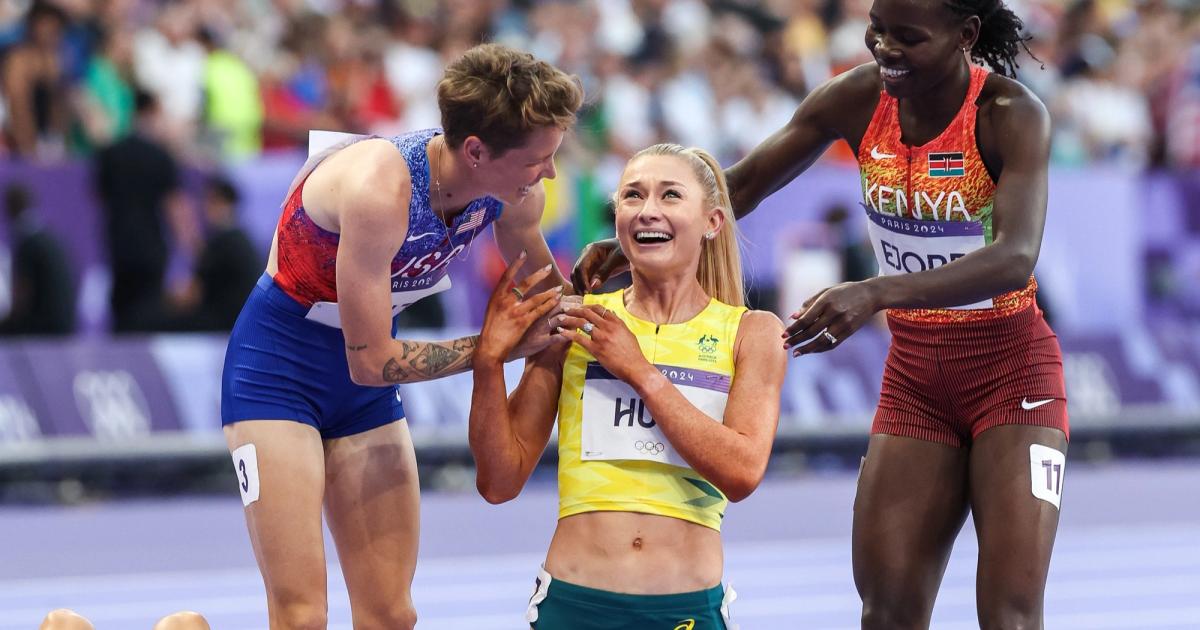
Spain: B+
Played to strengths. With three medals in the race walk, out of four events in total, the Spanish know where their strengths lie. The triple jump gold bodes well for the future, as Jordan Diaz Fortun looks like he could be a strong contender for years to come.
Incompletes/Honorable Mentions:
Major kudos to countries with significantly smaller track and field delegations on bringing home some significant hardware. It’s tough to fairly grade a nation that aced one or two events and contested zero others, but let’s hope the momentum of these hard-earned medals inspires other athletes from these countries and in the coming years we’ll see even more from them!
- St. Lucia, Dominica and Botswana for getting their first Olympic gold medals.
- Pakistan for their first medal since 1992, and first ever track and field medal
- Zambia for their first medal since 1996

Preet Majithia
Preet is a London based accountant by day and now a track fan the rest of the time. Having never run a step in his life he’s in awe of all these amazing athletes and excited to help bring some attention to the sport.
